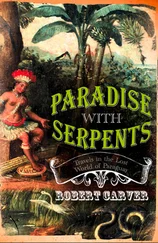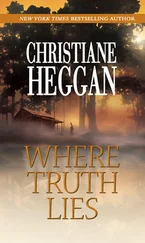We took Penny to her tennis class — our standard Friday evening. It’s a late one that starts at seven at the high school courts, for the advanced nine- to twelve-year-old girls who love the game. Melinda and I sat on a wooden bench at courtside and watched Penny and the others do their drills. There’s something about a youngster who is developing skills that makes me very happy. I watched Penny lean into her two-hand backhands, her head steady and her knees bent, sending the ball high over the net with lots of spin, and deep into her opponents’ court. She’s an intensely focused player, and quick to pounce on mistakes, much like her mother would be if she played the game. The yellow ball arced back and forth over the clean green court. There was the clomping of tennis shoes and the wonderful pop of strings on felt. The dusk was falling and you could see the Pacific not far away, dark and brooding under the orange-black sky. The light of the sun bounced off the windows of the houses behind us, turning them copper. I turned and looked. Someone was barbecuing up on the hillside. The new palm trees in front of the high school swayed lazily in the breeze and you could already see the first stars and the moon in the sky, even though the sun wasn’t down yet. I took Melinda’s hand and held it against my leg. She stiffened at first touch, like she almost always did, then relaxed and moved closer to me. She kissed my cheek and I squeezed her fingers with my own. After the hell that Mel went through with her father, and within herself, her new affection was like the sun coming out after a long and bitter night.
We watched Penny, saying little. Something about this time of evening asks you to be quiet. So we sat there close together with our fingers locked and our palms loosely touching and watched the yellow balls go back and forth. I thought about Matt because I always think about Matt when I feel good. When I feel bad I think about him, too. We were snorkeling off of Shaw’s Cove here in Laguna when he died. It was a freakish situation that took the doctors several days to explain. I agreed to an autopsy, though the thought of Matthew’s perfect little body being torn by the saws was a thought that made me vomit, more than once. I didn’t know anything was wrong until I saw him floating on the water. I got to him and stripped the mask off his lolling face and swam for shore with all my might. On the sand I proned him out and slapped his face, listening for his heartbeat. I couldn’t hear anything inside him because my ears were roaring and this flock of seagulls had chosen the air right above us to hover and caw and cry. I got him to start breathing. The next thing I did was gather his cool little body in my arms and run. I was a lot faster than a call to 911 and a wait for help. Across the beach, up the steps, and down Coast Highway for about a mile to the little walk-in emergency clinic. It didn’t take long, maybe five or six minutes in all, but I held him close the whole way, because to me he was the most precious parcel on earth. I talked to him the whole time. I still remember what I said. I burst into the waiting area and carried Matt past the desk and the nurses, back into one of the examination rooms, where a doctor was talking to a woman. They were both briefly horrified. But the doctor understood almost immediately and he took one look at me and one look at my son, and grabbed Matthew away from me. I told him what happened while he applied the oxygen mask to his face and the nurse attached the cardiac shock pads to his tiny chest. He ordered me to get the extra blanket from the other exam room, which I did, but when I tried to get back in he’d locked me out. A few minutes later, it was over.
Penny’s coach told them to take five, so she came over and set her racquet on the bench. She plunked down between us, breathing hard in the way a nine-year-old breathes hard, and you understand that in about fifty seconds they’ll be fully recovered and ready to go again. “I’m hitting good, Terry.”
“Well. You’re hitting well.”
I don’t know why Penny addresses nearly all her tennis comments to me. She’s been playing a lot longer than I’ve known her. Maybe it’s because we come out here and hit sometimes on the weekends. In fact, she’s been addressing me instead of her mother, or both of us, for the whole year we’ve shared the same roof. I’ve wondered if it’s her way of welcoming me to the unit. I’m flattered by it, I suppose, but I sometimes wonder if Melinda is as unfazed by being “second” as she says she is. Not having any children of my own, it’s hard for me to say what might hurt a parent’s feelings and what might not.
Penny then offered me this very penetrating, unguarded, hopeful look, a look I’ve never seen her cast on anyone else. Her pupils seem to bore right in, but not in aggression, rather approval. There is a twinkle of humor in her gray irises. I think it means she accepts me as a person, and has unique feelings for me, and that they are good feelings. I’ve come to think of it as Our Look, because I return it as best I can, though I have no idea what I look like, gazing back.
“How’s the backhand, Pen?” asked Melinda.
“The usual,” she answered absently.
“Well, what’s the usual?” asked Melinda.
“You know, Mom. ”
Melinda smiled and pulled Penny’s cap down over her eyes.
“ Mom, cut it out. ”
“Boo-hoo,” said Melinda.
“Boo-hoo,” I said.
Penny bounced off the bench and took up her racquet. She studied us. She tapped her mother on the top of the head with the strings, then me. “You’re just sticking up for her, Terry.”
“I think she’s worth sticking up for,” I said.
“And it’s nice to be stuck up for, sometimes.”
“My boyfriend’s going to stick up only for me,” said Penny.
“No use hogging all the good feelings,” said Melinda. “There’s enough of those to go around.”
Penny let out that impatient exhale that kids save for the ignorant, then skipped onto the court.
“She sure has gotten to be a smart-ass the last year,” Mel said.
“Kinda has.”
“She’s competitive and jealous.”
“Maybe she’s going out of her way to make me feel welcome.”
Melinda shook her head. “I don’t think so. It’s not that I don’t think she’s generous enough for that. Or duplicitous enough to fake it to get what she wants. She genuinely adores you.”
I thought about that. Melinda ascribes levels of sophistication — as in sophistry — to Penny that I don’t see. I see a lack of guile. It’s another example of the difference in the way we see children in general, I suppose.
“Do you really think she’d BS me?”
“Oh, yes. I think it’s instinct for some people. Intuitive self-preservation. Smearing a little honey on things. She knows you like her, and that’s your weak spot. She’s not exploiting it yet, I don’t think.”
“You make her sound like a Borgia.”
“I think she has depths you don’t see. Well, do you feel welcome with us?”
I thought about that for a moment. The last year had been full of good things for me and full of disappointments, too. “Yes, most of the time. I don’t forget that you two are the family and I’m kind of the third wheel, but... third wheels are good sometimes. Like on ATVs and trikes and—”
“—No, really, do you feel welcome, or don’t you?”
“I have. You’ve never made me feel like an outsider. And Penny hasn’t, either. I think she likes me.”
Melinda turned her face to me and studied me hard. She had that interrogator’s expression, the placid one that bores in, gathers all and gives up nothing in return. “In fact, she’s playing us off against each other a lot more now than she used to. She’s using you to leverage her discontents with me.”
Читать дальше
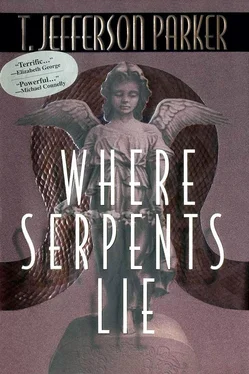


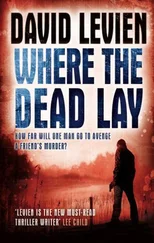
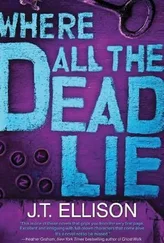

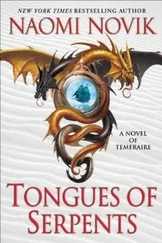

![Джеффри Дивер - Where the Evidence Lies [A Lincoln Rhyme Short Story]](/books/403782/dzheffri-diver-where-the-evidence-lies-a-lincoln-r-thumb.webp)

